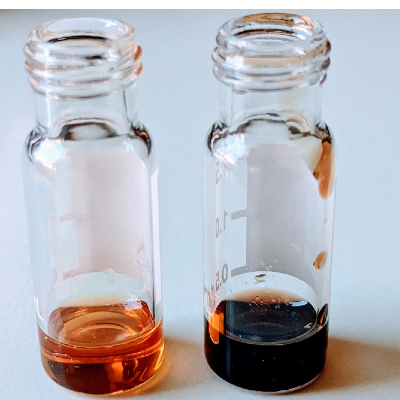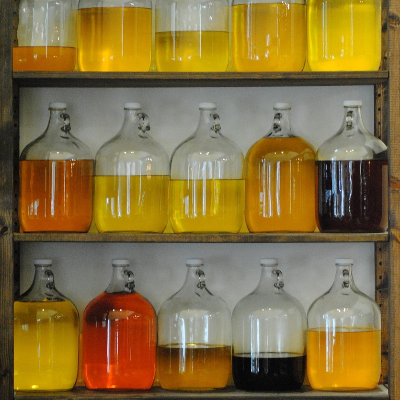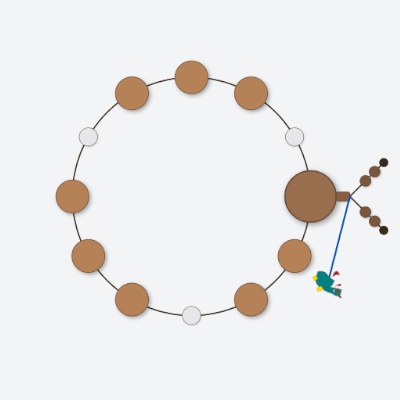Menu
-
-
F.A.Q
- How to identify genuine agarwood chip, natural or cultivated
- How to identify oil injection / absorption fake agarwood beads
- How to know if there are more than one oil in your oil
- How to make your wood bracelet or mala darker
- How to tell if an Agarwood bead sinks WITHOUT sinking it under water?
- How does back flow incense work and how do you burn it?
- Where to start if you don't know what agarwood is ?
- Why are you losing money if you buy seeds and plants?
- Which agarwood incense should I choose?
- Frequently Asked Questions
- Agarwood Related Articles
- Shipping
-
SHOP - Agarwood
-
SHOP - Other Fragrant Wood
-
SHOP - Incense Holder and Burner
-
- FREE Oud Oil guide
- Testimonials
- "Why did you buy this?"
- Contact us
- About Us
- +61430284329
- Login
-
English


Not sure if your Oud oil is pure? Do this simple low-cost test
Table of Contents:[hide]
I thought I was buying genuine oil from a reputable company.
In early January 2021, a representative from a medium-sized company was offering some agarwood deals to me. This company said they had their own plantations. The company's structure is rigidly hierarchical.
The website looks professional and impressive. So I assume the company must be a real deal. I placed an order for the two Agarwood oils of them.
Two weeks later, the package arrived. I was not at home. My wife Liliane received the package - two agarwood bottles in a carton box. She named one bottle was X, and the other was Y
She opened the package and told me what she felt.
It was not quite right
Liliane told me it smelled “nice”. The brown colour one, X, had a woody smell. Its strength was medium. It could be Agarwood oil

The black colour, Y, had a very powdery smell. It was sweet floral like a perfume. She asked me if this was attar?
I told her that the company confirmed these two Oud oils were 100% pure because they distilled their own oil. People in a big company like this must know what they are doing right?
According to the website, X is Super Grade, and Y is Standard Grade. Both of these oils are claimed as 100% pure. And I expected them to be pure because a reputable, medium-sized company distils these oils. They have been doing it for many years.
I got home and sampled it myself.
The moment I took a whiff, I knew Liliane was right. I could not believe it what I just smelled.
In my mind, these "100% pure Oud Oils" X and Y were adulterated.
The company does not have GCMS, but it could take weeks to carry one, and it could be expensive. Most of us already spent hundreds on the oil so it would be odd to spend another hundred to get the oil tested.
Feel like getting nowhere? Don't worry; there is another way to know because I explained it here. This post will be using the same method using:
Two physical properties Of Oud oil
Let me explain
Pure Oud oil is not water-soluble.
100% pure oud oil could be either of these two:
- Essential oil: Oud oil produced by Hydro-distillation or Steam-distillation
- Co2 extract Oud oil: Oud oil extracted by Co2 solvent
Finished Products: Essential oil and Co2 extract Oud oil are not water-soluble (the water-soluble part is Hydrosol but we will not discuss it here)
With essential oil: during the distillation process, the water is cloudy.
But once the oil is collected, cured and appropriately aged. The oil is no longer soluble in water.
With Co2 extract Oud, the oil is also not soluble in water.
Each essential oil has its own density.
Water density is 1,
- If an oil has a density smaller than 1, it will float. In case of essential Oud oil, it will be likely float
- If an oil has a density larger than 1, it will sink. Co2 extract oil will sink
- If an oil has a density of 1, it will be just on the surface, part of it will be underwater
When you are in doubt if the Oud oil is blended, just add water, shake, and observe
Here is what pure oil and blended oil looks like

Disclaimer: Hydro Oud oil and CO2 Oud oil are our own oil. We know it is pure because we tested it and our clients also tested it
Essential Oil (labelled as Hydro Oud oil - a Grandawood Oud Oil)

The smell is a woody smell, consistent with an agarwood scent profile
The oil floats on water.
The water is clear
You see one consistent colour of the oil.
It means that there is likely only one single oil in this vial.
Co2 Oud oil (a Grandawood Oud oil)

The smell is a woody aroma, consistent with CO2 Oud oil, simple, lost lasting.
The oil sinks underwater. A thin layer of oil was on the top.
The water is clear
One consistent colour of the oil
It means that the oil is heavier than water and there is likely only one oil in this vial.
X Oud oil: “claimed 100% pure Oud oil”

The aroma is woody and smoky. Somewhat resembles agarwood scent profile.
The oil floats on water.
The water is cloudy.
One consistent colour of the oil
It means part of the oil was water-soluble, which make the oil cloudy.
It also means the oil has not been cured and aged well.
Conclusion: the oil could be 100% pure, but the distiller has not distilled this oil properly, the impurity is still in the oil, and it dissolves in water making it cloudy. The distiller did not "treat" the oil properly
Below is the agarwood oil is being distilled. As you can see, the top golden layer is pure oil and this oil is sitting on the distilling water. This water is cloudy because small part of the oil is soluble.

This oil will need to be filtered out and cured to ensure all water evaporate and only pure oil remains
Y "Oud oil: claimed 100% pure Oud Oil.”

This oil smells unusually powdery, musky -- not a scent profile of Oud oil.
I believe this is an oil perfume or an attar.
The water is cloudy
Two colours of oil black and brown: it means there are more than one oil in the vial. Some part of the oil float, some either float or sink (this could happen during the distillation only. This is as the oil was packaged and sold in the market as a finished product so it does not look right to me)
Conclusion: the vial contains more than one oil, so this Y oil is not pure although it may contain Oud). This product should have been labelled as Perfume or Attar rather than 100% Pure Oud
What learnt
The X and Y oil are from a good-sized agarwood company that had plantations. Its office is in a fancy building. On the surface it looks great.
I could not believe myself when I tried these oil. I thought I must be wrong.
But with this method of testing, I could tell one of these two oil is not pure (marked as Y). The other one (marked as X) is inconclusive but the craftmanship was poor.
How could a company this size labelled their products incorrectly. I contacted them but they confirmed these oil were genuine. Clearly, they do not know what they are doing.
Very disappointed.
On the positive side, fortunately, I only order 6g worth of oil. I share my lesson here so you all can be benefit from it.
To sum up, see the below images


If you don't like to read, then I have a short video to sum this up.
Excuse my video editing skill because the footage was raw without editing.
So, if you want to sample genuine oud oil after reading this article, then you can click here to learn more
2 Responses
Gasser
June 30, 2022
As an oud enthusiast, I thank you very much for this great article. There need to be many more comments because almost every oud buyer and collector must have experienced a similar situation: paying a lot for an oud oil that eventually turns out to be anything but an oud oil.
Leave a comment
Comments will be approved before showing up.



Rinchen Nidup
August 31, 2022
Extremely good idea to identify the pure oud oil.
Thanks for your good information.
With best regards
Rinchen Nidup
Bhutan